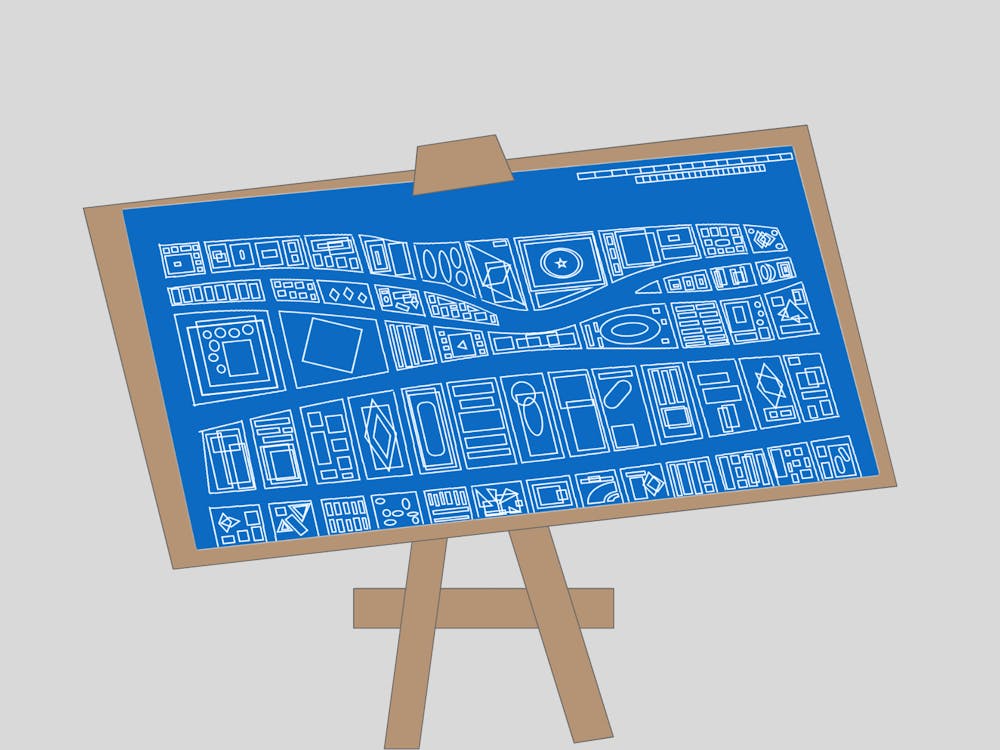The strong aroma of coffee, the shared sense of stress before exams, whatever it is that goes on in the stacks — there are certain quirks that make Alderman Library a fixture of University life. Where Clemons is frantic and cluttered (though still endearing), Alderman, for all its peculiarities, is stately and judicious. In both its impressive architecture and its seemingly endless stacks, it evokes the power of knowledge and the memory of a time when all research was done exclusively at the library. For many students, studying at Alderman is reminiscent of an older, grainier shade of academia, one in which information was not quite as accessible as a simple click away.
Though lending a certain amount of character to the library, the building’s age has also rendered its facilities out-of-date. With this in mind, the University Library system has started planning critical renovations for Alderman library. As college libraries begin to transition into an increasingly digital age, questions will arise as to the role traditional print resources will play in a library of the future. The central goal should be creating a modern intellectual nexus for the University community that is both equipped to serve the evolving technological needs of students and mindful of the desire to preserve its more traditional elements.
In this regard, the people tasked with planning the renovations face a difficult mission. The changing media landscape has had a considerable impact, within the past few years alone, on how people find and access information. The key challenge going forward for the planning committee will be trying to adjust the services that Alderman offers to these new realities while still serving the needs of patrons who rely on more traditional resources. Many students have expressed their desire for the addition of large meeting rooms and designated quiet study spaces. Given the evolving study and research habits of today’s students, these desires merit strong consideration in the development of a proposal for the building’s renovation.
If the renovation to Alderman involves a considerable amount of digitization, which it likely will, the community should at least be wary of the limits of an increasingly digital library. The growing amount of digital information made available by libraries through paid subscriptions, combined with the increasing amount of information available free via the Internet, has generated, for some, the misguided impression that all information is available electronically. Relatively few of the millions of journals and books that fill our academic libraries have been retrospectively converted into digital format. Digital resources will certainly play a more prominent and positive role in the libraries of the future, yet it must be remembered that the technology behind them is constantly evolving and will present many challenges for libraries and students alike as they attempt to adapt.
Admittedly, the University’s digital collections are, comparatively, quite extensive and thorough. Though the University’s digital collections continue to expand rapidly, we should be at least be circumspect in terms of how that reality will shape our vision for Alderman as an institution and as a part of student life. It is beyond dispute that the library will require technological updates to its infrastructure and design, the addition of space to meet student desires and an expansion in digital access. Students should strongly encourage these overdue changes, as they will assist in the process of modernizing student life at the University.
Our concept of a modern library would be deficient if it were to focus solely on matters of technical development and digital improvement. Call it an idealistic stance if you will, but there is merit to the notion that the presence of books lends intrinsic value to the library itself. Indeed, University Librarian Karin Wittenborg has mentioned that both students and faculty alike point to Alderman’s wealth of physical resources as adding an “aura of gravitas to being there.” The library’s renovation should seek to safeguard that treasured sense of gravitas, a feeling that has immeasurable psychological and emotional value for the countless students and faculty who work, study and research at Alderman on a daily basis. Digital resources may add the benefits of accessibility and efficiency to a modern library, but for the many who find an ineffable sensation of liberation in books, the more traditional aspects of the library are more than worth preserving.
Conor Kelly is an Opinion Columnist for The Cavalier Daily. He can be reached at c.kelly@cavalierdaily.com.




